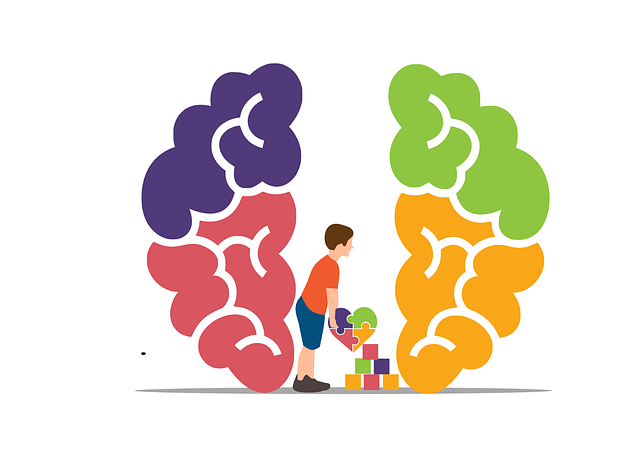Burnout among healthcare providers is a growing concern, but Lafayette Men's Issues Therapy (LMIT) offers a comprehensive solution. They advocate for early recognition of burnout signs like exhaustion and detachment through community outreach, mental health resources, and public awareness campaigns. LMIT focuses on staff well-being by promoting work-life balance, open dialogue, and self-care practices such as cognitive reframing, mindfulness, and exercise. Their supportive work environment includes designated quiet spaces, debriefing sessions, and regular workshops to empower employees in navigating work-life balance effectively, ultimately benefiting patient care outcomes.
Healthcare provider burnout is a growing concern, impacting not just individuals but the entire healthcare system. This article explores strategies to prevent burnout among healthcare workers, focusing on signals to watch out for and proactive measures like self-care practices and supportive work environments. We delve into specific techniques, such as those implemented by Lafayette Men’s Issues Therapy, to create resilient and thriving professional communities. By recognizing and addressing burnout early, we can enhance patient care and overall well-being.
- Recognizing Burnout Signals in Healthcare Providers
- Implementing Effective Coping Mechanisms and Self-Care Practices
- Fostering Supportive Work Environments for Lafayette Men's Issues Therapy
Recognizing Burnout Signals in Healthcare Providers

Burnout is a significant concern within the healthcare industry, impacting not only individual providers’ well-being but also patient care and overall organizational success. Recognizing the early signs of burnout is crucial for effective intervention. Healthcare providers often exhibit physical and emotional exhaustion, detachment from work, and reduced professional efficacy. This may manifest as increased absenteeism, decreased productivity, or even a sense of apathy towards patients and colleagues. At Lafayette Men’s Issues Therapy, we understand that these signals can be subtle and often go unnoticed by both the individual and those around them.
To address burnout effectively, it is essential to foster a culture of awareness and support. This includes implementing community outreach programs that promote work-life balance and mental health resources, as well as encouraging open dialogue through conflict resolution techniques. Public awareness campaigns can also play a vital role in educating healthcare providers about the signs of burnout and providing strategies for coping and prevention. By recognizing and addressing burnout signals early, healthcare organizations can ensure the long-term well-being of their staff and maintain high-quality patient care.
Implementing Effective Coping Mechanisms and Self-Care Practices

Healthcare providers often face high-stress environments, which can lead to burnout if left unaddressed. Implementing effective coping mechanisms and self-care practices is crucial for maintaining well-being. This includes engaging in emotional healing processes such as therapy, whether individually or through group support networks. Lafayette Mens Issues Therapy, for instance, offers specialized services tailored to address male mental health concerns.
Encouraging healthcare professionals to prioritize self-care isn’t just a recommendation—it’s a vital strategy to enhance resilience and prevent burnout. This involves adopting mind over matter principles, where cognitive reframing and positive thinking can significantly impact overall mental health. By integrating regular physical activity, mindfulness techniques, and adequate sleep into their routines, providers can foster a healthier work-life balance, thereby improving job satisfaction and patient care outcomes.
Fostering Supportive Work Environments for Lafayette Men's Issues Therapy

Creating supportive work environments is essential for fostering resilience among healthcare providers, especially within Lafayette Men’s Issues Therapy (LMIT). This involves implementing policies and practices that prioritize staff well-being. One strategy could be establishing designated quiet spaces where professionals can take moments of respite, encouraging mindfulness and stress reduction techniques. Moreover, LMIT can promote open communication channels to facilitate debriefing sessions, where providers can discuss challenging cases or work-related stresses. Such a culture of support empowers employees to seek help without stigma.
Integrating self-care routines into the fabric of LMIT’s workplace is another effective approach. Encouraging staff to prioritize their mental health through structured self-care practices, like regular exercise and dedicated time for hobbies, can significantly enhance job satisfaction. Additionally, the organization can conduct regular workshops on self-awareness exercises and mental health policy analysis and advocacy, empowering professionals with tools to navigate work-life balance effectively.
Burnout among healthcare providers is a pressing issue, but by recognizing early signals and implementing coping mechanisms, self-care practices, and supportive work environments, we can foster resilience. Strategies like those highlighted for Lafayette Men’s Issues Therapy offer valuable insights into creating sustainable solutions. By prioritizing well-being, healthcare professionals can not only mitigate burnout but also enhance patient care and overall job satisfaction.









